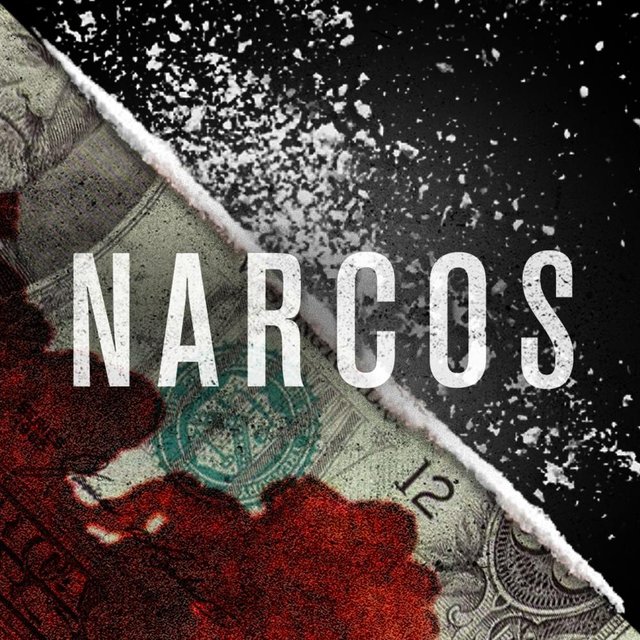Narcos
Narcos
Narcos: A Gritty Look into the Drug Trade and Law Enforcement
Narcos is one of Netflix’s most gripping crime dramas, chronicling the real-life stories of drug cartels and law enforcement’s relentless pursuit to dismantle them. Created by Chris Brancato, Carlo Bernard, and Doug Miro, Narcos debuted in 2015 and quickly gained a reputation for its intense storytelling, raw performances, and deep historical insights into the global drug trade. The series spans three seasons, followed by the spin-off Narcos: Mexico, expanding its narrative into the rise and fall of drug empires in South America.
Plot Overview
Narcos primarily follows the rise and fall of Pablo Escobar, the infamous Colombian drug lord who built the Medellín Cartel into one of the most powerful and violent criminal organizations in history. The first two seasons explore Escobar’s journey from a small-time smuggler to a billionaire narcotics kingpin, portraying his ruthless ambition, political aspirations, and the terror he unleashed on Colombia.
On the other side of the conflict, the series introduces DEA agents Steve Murphy and Javier Peña, whose mission is to track down and bring Escobar to justice. Their battle against the cartel is fraught with corruption, violence, and moral dilemmas, making it a high-stakes game of cat and mouse.
The third season shifts focus to the Cali Cartel, the organization that succeeded Escobar. Unlike the brute force tactics of Medellín, Cali operated through bribery, political influence, and a sophisticated network of operations. The show masterfully portrays the complexity of dismantling such a vast empire, showing that the war on drugs is never truly over.

Themes and Symbolism
Narcos delves into deeper themes beyond the thrilling action and brutal violence.
- The Cost of Power – Both the cartels and law enforcement are driven by ambition, but power comes at a cost. Escobar’s empire ultimately leads to his downfall, while the DEA agents sacrifice personal relationships and morality for the cause.
- Corruption and Politics – The show highlights how drug money infiltrates politics, police forces, and even everyday society, making the fight against cartels nearly impossible.
- The Cycle of Violence – As soon as one drug lord falls, another rises. The transition from the Medellín to the Cali Cartel, and later to the Mexican cartels, shows how the war on drugs is an endless struggle.
- Humanizing the Criminals – While Escobar is a ruthless killer, the show also portrays his devotion to his family and his deep ties to the Colombian people, making him a complex and layered character.
Character Analysis
The show’s success is driven by its compelling characters, each playing a crucial role in the unfolding drama.
- Pablo Escobar (Wagner Moura) – The heart of the first two seasons, Escobar is depicted as both a visionary and a tyrant. Wagner Moura’s performance is chilling, showing Escobar’s charisma, brutality, and paranoia as his empire crumbles.
- Steve Murphy (Boyd Holbrook) – As one of the DEA agents narrating the series, Murphy gives the audience an outsider’s perspective on the drug war. His character faces the psychological toll of witnessing extreme violence and moral dilemmas.
- Javier Peña (Pedro Pascal) – A more seasoned DEA agent, Peña is determined to bring down Escobar but faces ethical dilemmas when working with questionable allies. He becomes the primary protagonist in later seasons.
- Gilberto and Miguel Rodríguez Orejuela (Damián Alcázar and Francisco Denis) – The leaders of the Cali Cartel, they present a new breed of criminals—less flamboyant than Escobar but just as dangerous through their calculated approach.
- Colonel Horacio Carrillo (Maurice Compte) – A brutal yet determined police officer, Carrillo is one of the few characters willing to fight Escobar on his own violent terms.
Realism vs. Fiction
While Narcos is based on true events, the show takes creative liberties to enhance the drama. Some events are condensed, characters are fictionalized, and certain timelines are altered for storytelling purposes. However, the core of the series remains historically accurate, offering a compelling look into the drug trade’s real-world impact.
The inclusion of real news footage and archival material adds authenticity, making the series feel more like a documentary at times. This blend of fact and fiction helps educate audiences about the devastating effects of the cocaine trade while keeping them entertained.
Cinematography and Direction
Narcos sets itself apart with its documentary-style cinematography, gritty realism, and immersive world-building.
- Location Authenticity – Filmed in Colombia, the show captures the landscapes, cities, and rural areas where the drug wars took place, adding to the realism.
- Handheld Camera Work – Many scenes use handheld cameras to create a raw, unfiltered experience, making the action more intense.
- Historical Footage Integration – The use of real news clips and interviews gives a documentary-like feel, reinforcing the show’s historical grounding.
- Symbolic Imagery – Escobar’s grand estate, Hacienda Nápoles, serves as a symbol of his excessive wealth and eventual isolation, mirroring his rise and fall.
Cultural Impact and Legacy
Narcos became a global phenomenon, sparking discussions about the history of drug cartels and law enforcement’s role in combating them.
- Rise in True Crime Popularity – The show contributed to the growing fascination with crime dramas and real-life criminal enterprises.
- Boost in Tourism to Colombia – Despite its dark subject matter, Narcos led to increased interest in Colombia’s history, culture, and tourism.
- Memorable Catchphrases – Lines like “Plata o plomo” (Silver or lead) became iconic, representing the choice Escobar gave his enemies—bribery or death.
- Influence on Other Shows – The success of Narcos paved the way for other cartel-focused series like El Chapo, Queen of the South, and Narcos: Mexico.
Critical Reception and Awards
Narcos received widespread critical acclaim for its storytelling, performances, and historical depth.
- Wagner Moura’s portrayal of Pablo Escobar was particularly praised, earning him a Golden Globe nomination.
- The show holds a high rating on Rotten Tomatoes and IMDb, with audiences and critics praising its compelling narrative and character depth.
- It garnered multiple award nominations for cinematography, direction, and writing.
The Expansion: Narcos: Mexico
Following the success of the original series, Netflix expanded the Narcos universe with Narcos: Mexico. This spin-off shifts the focus from Colombia to Mexico, chronicling the rise of the Guadalajara Cartel and the origins of the modern Mexican drug war.
- New Protagonist – Diego Luna plays Miguel Ángel Félix Gallardo, the mastermind behind Mexico’s first major cartel.
- New DEA Agent – Michael Peña stars as Kiki Camarena, a real-life agent whose tragic story set the stage for future drug wars.
- Parallel Themes – Narcos: Mexico retains the storytelling style of the original while exploring the deep-rooted corruption and brutality of the Mexican cartels.
Conclusion
Narcos is more than just a crime drama—it is a historical epic that explores the complex web of drug trafficking, law enforcement, and corruption. Through compelling characters, intense action, and real-world relevance, the show provides a gripping and educational experience. Whether you are drawn to the drama of Pablo Escobar’s reign or the cunning tactics of the Cali Cartel, Narcos remains a must-watch for fans of true crime, history, and high-stakes storytelling.












Post Comment